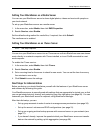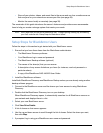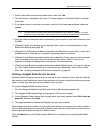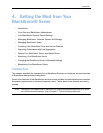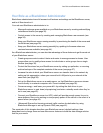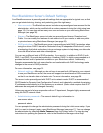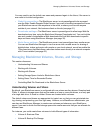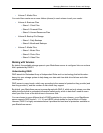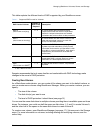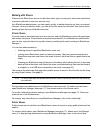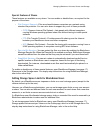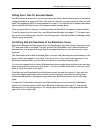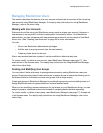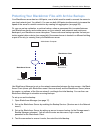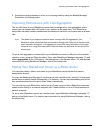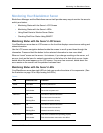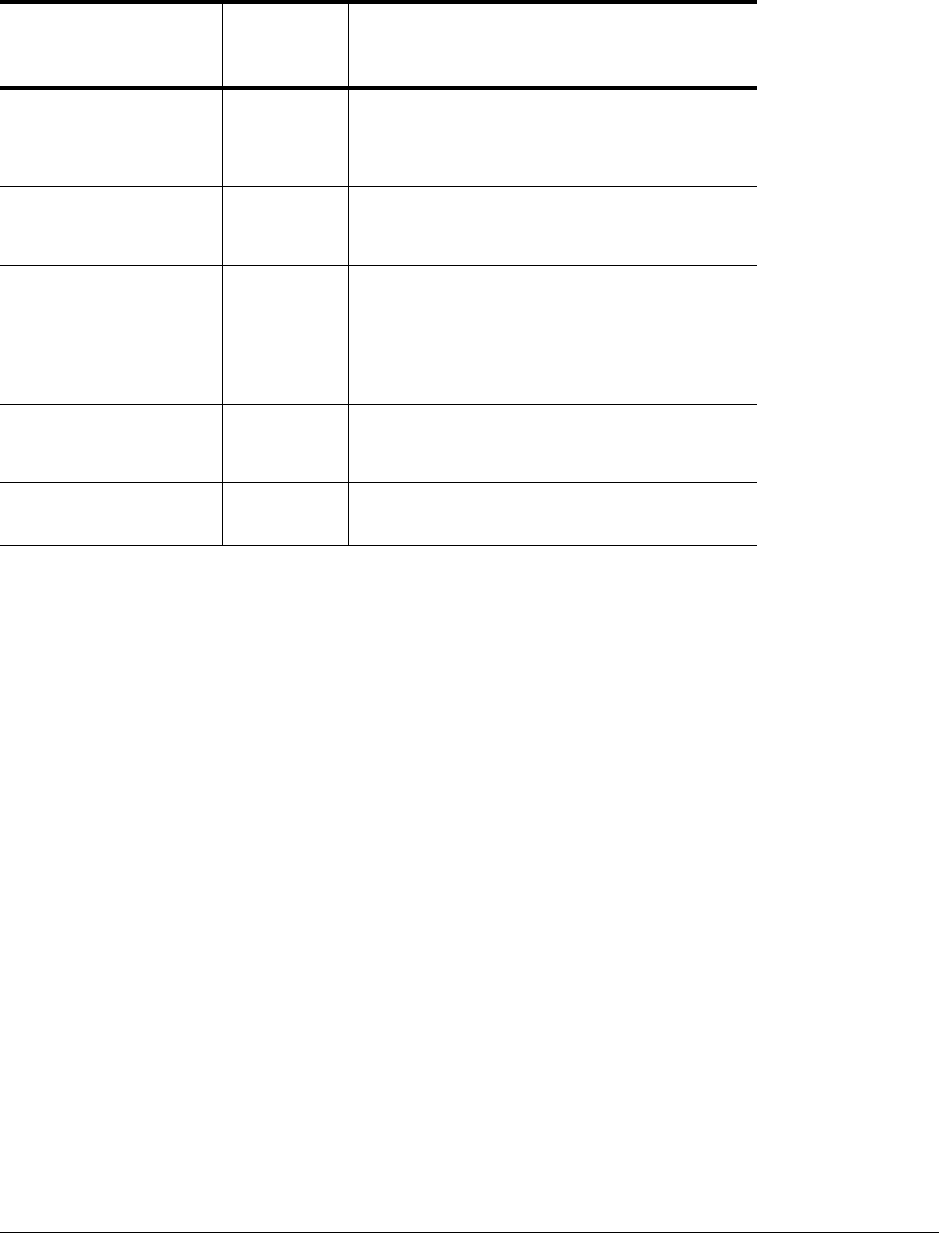
BlackArmor® NAS User Guide 32
Managing BlackArmor Volumes, Shares, and Storage
This table explains the different levels of RAID supported by your BlackArmor server.
Seagate recommends that only users familiar and comfortable with RAID technology make
changes to the server’s RAID protection.
Creating New Volumes
As a BlackArmor administrator, you can create all the shares you want in the default volume, or
you can create more volumes using BlackArmor Manager. When you create a volume, you can
specify:
• The size of the volume
• The disk drive(s) you want to use
• The level of RAID protection it should have (see page 31)
You can use the same disk drives in multiple volumes providing there is available space on those
drives. For instance, you could use half the space on disk drives 1, 2, and 3 to create Volume A,
and the other half of the space on the same disk drives to create Volume B.
To create a new volume, open BlackArmor Manager (see page 17). Volumes are in the Storage
menu. For more information on volumes, including deleting and modifying volumes, see the
online Help.
Table 1: Supported RAID Levels for Volumes
RAID Level of Volume
Number of
Disk Drives
Required
Description
RAID 0
(Also known as striping)
2 – 4 A volume where data is distributed evenly
(striped) across the disk drives in equal-sized
sections. A striped volume does not maintain
redundant data, and so offers no data protection.
RAID 1
(Also known as mirroring)
2 A volume where one disk drive is a mirror of the
other (the same data is stored on each disk
drive). Provides data protection.
RAID 5 3 – 4 A volume with RAID 5 uses data striping and par-
ity data to provide redundancy. (Parity is extra
information that’s used to re-create data if a disk
drive fails. In volumes with RAID 5, parity data is
striped evenly across the disk drives with the
stored data.)
RAID 10 4 A volume with RAID 10 is built from two or more
equal-sized RAID 0 volumes. Data in a volume
with RAID 10 is both striped and mirrored.
Span
(Also known as a JBOD
a
)
a.‘Just a Bunch of Disks’.
1 – 4 A group of disk drives in a server, not protected
by RAID.



